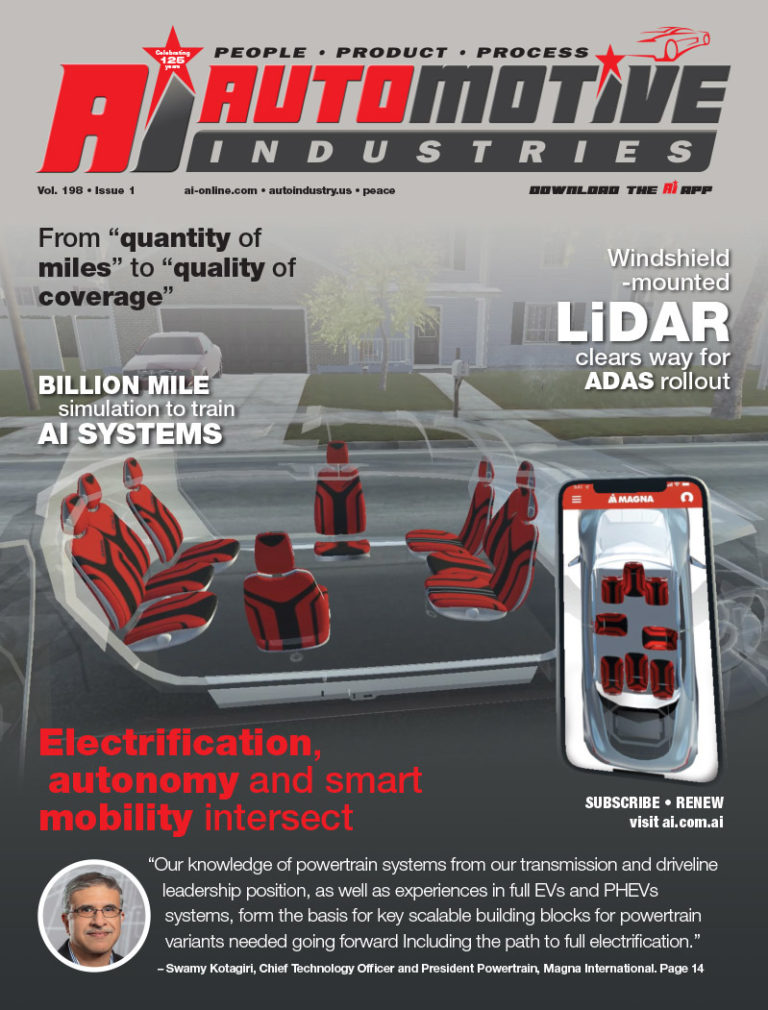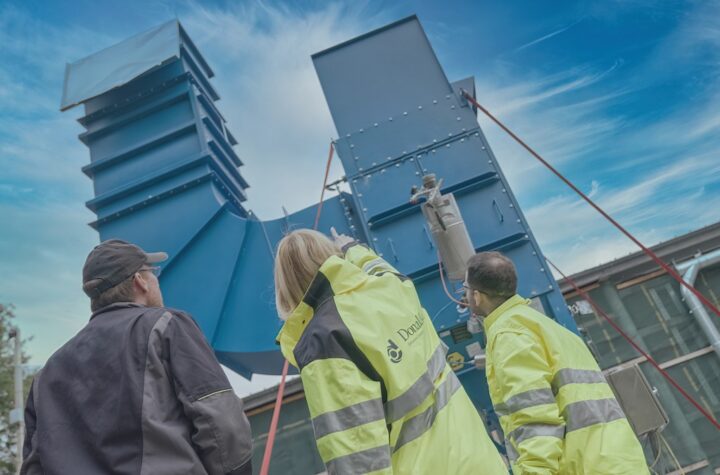Styron, a global materials company and manufacturer of plastics, latex and rubber, unveils the first full-thermoplastic, mono-material lift-gate ever produced in series on a commercial vehicle featured in the New Renault Clio.
Long-term partnership as a basis
Styron has been working closely together with Renault for many years. When the French OEM approached Styron to collaborate on producing a new lift-gate for the New Renault Clio that would not only target a weight reduction of 10% but would also be easily recyclable, the Styron Sales and Engineering Teams had an exciting, new development project on their hands.
Styron played an important role from concept development to production of the final part:
Whereas both teams collaborated closely in the engineering phase to design the right structural part of the lift-gate, Styron also brought in its expertise in the material development implementation phase to select and test the materials required to fulfill the specific requirements for a lift-gate. To achieve this, extensive process simulation has been conducted at Styron’s global Application Engineering & Design Centre (AEDC).
After a two-year development project with Styron, Renault is now launching the New Renault Clio with a thermoplastic lift-gate made with Styron’s material solutions. The lift-gate is manufactured in thermoplastic from three separate parts.
“The automotive industry has been looking for alternatives to steel for lift-gates for many years. Weight savings, styling freedom and function integration are the main objectives,” says Marjolein Groeneweg, Marketing Manager Styron Automotive. “With this innovative concept jointly developed by Renault and our R&D department, the French car manufacturer not only contributes to weight reduction for optimal fuel efficiency but also responds to waste management recycling guidelines promoting recyclability without disassembly. Knowing that the base polymer of the lift-gate solution is the same, the part can be easily recycled and used in other future applications.”
Conceptual phase: designing a structural part that meets all requirements
Initially Styron Automotive supported Renault in the engineering phase with process simulations to obtain the right concept for developing a thermoplastic lift-gate. A lift-gate is a complex application for several reasons: It needs to fit perfectly on to the car and has numerous functions that need to be hidden (such as the hinges and the closing mechanism). Additionally, it is subjected to many external conditions such as exposure to high/low temperature in humid environment that can cause deformation issues and must then be addressed to guarantee water tightness. To help improve impact resistance, expansion and durability of the structural part of the lift-gate, Styron’s engineers introduced INSPIRE™ long glass fiber polypropylene resin (LGF-PP) to meet such requirements. By increasing the glass content of the molding material, the part is able to gain improved stiffness and toughness.
In addition, Styron also supported Renault in optimizing the tool-design for their machine and specifically supported them with selecting the appropriate plasticizing screw to maintain the required fiber length after moulding the lift-gate. Choosing a material composition and manufacturing process that achieves the desired glass fiber length distribution is critical to meeting the specific performance requirements of Renault’s lift-gate.
Berend Hoek, Application Engineering & Development Styron Automotive adds: “Renault had initially approached us to support them with the concept development of the new lift-gate. They had seen our engineering capabilities at work for the structure development for the front end carrier of the VW Golf using LGF-PP. This exterior application was confronted with similar complexity issues in design as well as production process: it consisted of different metal and thermoplastic parts that had to be assembled into a single application.”
Production phase: fine-tuning materials to Renault’s production process
In the realization/production phase, Styron has offered both material development and processing support. In the selection of the materials, Styron was confronted with several challenges due to the complexity of the part. The selected materials were tested and fine-tuned to Renault’s specific production process including injection molding, painting, bonding and welding. The final lift-gate design consists of three parts:
• The inner skin is injection moulded using a talc filled polypropylene compound from Styron and connects to the structural part.
• The structural part is produced with long glass fiber polypropylene resin (LGF-PP) concentrate developed by Styron. This concentrate is diluted directly on the moulding machine with appropriate PP copolymer resin through dry-blend directly.
• The outer skin is made with Styron’s INSPIRE™ At-Press talc masterbatch concept, which injection moulds through blending of the different components (polypropylene impact copolymer, specifically designed 70% talc masterbatch and the required color concentrate), allowing for a tailored mechanical performance to meet the OEM specific application requirements.
Tony Samurkas, Global R&D Director Styron Plastics explains, “Our materials science and characterization knowledge, combined with design engineering and processing knowledge, allowed us to offer Renault our expertise in these different aspects throughout the design, development and production process of the New Clio.”
About Styron Automotive
Styron Automotive, a business unit of Styron Corporation LLC, delivers breakthrough innovative solutions for automotive interior and exterior components. ABS, Polycarbonate, PC/ABS, LGF PP, TPOs and elastomeric materials from Styron Automotive are helping advance applications like mid and upper consoles, instrument panels, blow molded seat backs, bumper fascias, trim, and more.
From best-in-class scratch resistance and light weight to high heat resistance and low VOC levels, Styron Automotive resins offer exceptional durability, high-end aesthetics, and cost efficiencies to help OEMs differentiate their automobiles and brands.
To learn more about Styron Automotive visit our website: www.styronautomotive.com
About Styron
Styron is a leading global materials company, dedicated to innovate and deliver for its customers. Styron’s unique product portfolio brings together plastics, rubber and latex businesses that share feedstocks, operations, customers and end users. Styron has approximately $6 billion in revenue (2011), with 20 manufacturing sites around the world. Styron’s 2100 employees are committed to listen to customers’ needs and provide innovative and sustainable solutions in industries such as home appliances, automotive, building & construction, carpet, commercial transportation, consumer electronics, consumer goods, electrical & lighting, medical, packaging, paper & paperboard, rubber goods and tires.














































 Automotive Industries interview - Ian Stone, Managing Director of UK Tech Events
Automotive Industries interview - Ian Stone, Managing Director of UK Tech Events


